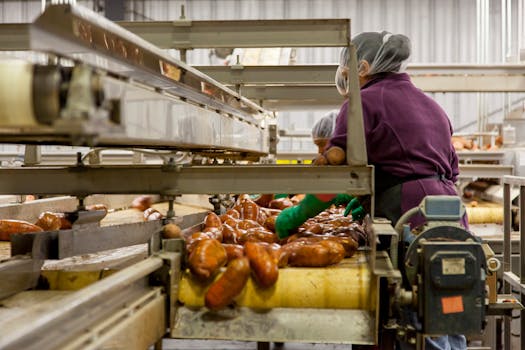+17162654855
+17162654855
DMV Publication News serves as an authoritative platform for delivering the latest industry updates, research insights, and significant developments across various sectors. Our news articles provide a comprehensive view of market trends, key findings, and groundbreaking initiatives, ensuring businesses and professionals stay ahead in a competitive landscape.
The News section on DMV Publication News highlights major industry events such as product launches, market expansions, mergers and acquisitions, financial reports, and strategic collaborations. This dedicated space allows businesses to gain valuable insights into evolving market dynamics, empowering them to make informed decisions.
At DMV Publication News, we cover a diverse range of industries, including Healthcare, Automotive, Utilities, Materials, Chemicals, Energy, Telecommunications, Technology, Financials, and Consumer Goods. Our mission is to ensure that professionals across these sectors have access to high-quality, data-driven news that shapes their industry’s future.
By featuring key industry updates and expert insights, DMV Publication News enhances brand visibility, credibility, and engagement for businesses worldwide. Whether it's the latest technological breakthrough or emerging market opportunities, our platform serves as a bridge between industry leaders, stakeholders, and decision-makers.
Stay informed with DMV Publication News – your trusted source for impactful industry news.
Industrials

**
Intel's ambitious foray into the foundry business is facing a significant setback, with reports indicating that more than 10,000 factory workers could be impacted by an "enormous cutback" across its manufacturing operations. This represents approximately one-fifth of Intel's global workforce, sending shockwaves through the semiconductor industry and raising concerns about the future of American chip manufacturing. The layoffs, which are part of a broader restructuring effort announced by Intel CEO Pat Gelsinger, highlight the challenges facing the company as it attempts to compete with industry giants like TSMC and Samsung in the fiercely competitive foundry market.
The exact number of job cuts remains unconfirmed, with Intel declining to officially comment on specific figures. However, multiple sources within the company and industry analysts suggest that the figure could exceed 10,000, impacting a significant portion of its manufacturing workforce across various locations. This would represent a substantial reduction in Intel's global employee base, potentially affecting roles spanning from manufacturing technicians and engineers to support staff. The scale of these potential Intel layoffs is unprecedented in recent company history.
While the precise geographic distribution of the layoffs remains unclear, it's anticipated that facilities in the United States, particularly those focused on older fabrication nodes, will be disproportionately affected. Intel's Arizona and Oregon facilities, vital to its chip production, are likely to see significant workforce reductions. The ripple effect of these job cuts could extend beyond Intel itself, impacting local economies and related industries.
Several factors contribute to Intel's drastic measures. The company has faced increasing pressure from competitors like TSMC and Samsung, who have advanced manufacturing capabilities and a more established customer base in the foundry space. Intel's struggle to match their advanced process nodes (like 3nm and 5nm) has led to missed production targets and significant cost overruns. Furthermore, the global semiconductor industry is experiencing a cyclical downturn, reducing demand and forcing companies to reassess their operational strategies.
The implications of Intel's dramatic restructuring extend far beyond the company itself. The potential loss of over 10,000 skilled manufacturing jobs could significantly impact the US semiconductor industry, particularly its efforts to regain a competitive edge in advanced chip manufacturing. This move fuels concerns about the ongoing "chip shortage" and the US's reliance on foreign foundries for crucial components. The economic fallout could be significant, affecting local economies dependent on Intel's manufacturing operations.
Intel CEO Pat Gelsinger has emphasized that these difficult decisions are necessary for the long-term health and competitiveness of the company. The restructuring aims to streamline operations, focus resources on key growth areas, and improve profitability. This likely involves a shift towards higher-margin product lines and a renewed emphasis on innovation in advanced process technology. While the layoffs represent a significant blow, Intel hopes this restructuring will ultimately position the company for future success in the challenging semiconductor landscape.
Intel is expected to provide more details about its restructuring plan in the coming weeks and months. The company's future strategy will likely focus on:
The Intel foundry layoffs represent a significant turning point for the company and the broader semiconductor industry. While the short-term consequences are likely to be painful, the long-term impact will depend on Intel's ability to successfully navigate this challenging period and implement its revised strategy effectively. The coming months will be critical in determining whether these drastic measures ultimately lead to a revitalized and more competitive Intel, or further solidify the dominance of its Asian rivals. The situation warrants close monitoring as it unfolds, with the full extent of the impact on workers and the industry yet to be fully realized.